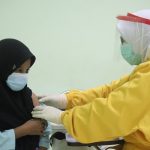At least 824 million people worldwide malnourished by end of 2020: U.N.

Jakarta (Indonesia Window) – The economic and social disruption due to the COVID-19 pandemic has been of great concern, putting tens of millions of people at risk of falling into extreme poverty, according to a joint statement by several United Nations (U.N.) organizations received by Indonesia Window here on Saturday.
The number of undernourished people, currently estimated at nearly 690 million, could increase by up to 132 million by the end of the year, to 824 million, ILO (International Labor Organization), FAO (Food and Agriculture Organization), IFAD (International Fund for Agricultural Development) and WHO (World Health Organization) stated.
The COVID-19 pandemic has led to a dramatic loss of human life worldwide and presents an unprecedented challenge to public health, food systems and the world of work.
The statement said millions of enterprises face an existential threat.
Nearly half of the world’s 3.3 billion global workforce are at risk of losing their livelihoods.
Informal economy workers are particularly vulnerable because the majority lack social protection and access to quality health care and have lost access to productive assets.
Without the means to earn an income during lockdowns, many are unable to feed themselves and their families. For most, no income means no food, or, at best, less food and less nutritious food.
The pandemic has been affecting the entire food system and has laid bare its fragility, the statement said.
Border closures, trade restrictions and confinement measures have been preventing farmers from accessing markets, including for buying inputs and selling their produce, and agricultural workers from harvesting crops, thus disrupting domestic and international food supply chains and reducing access to healthy, safe and diverse diets.
The pandemic has decimated jobs and placed millions of livelihoods at risk.
As breadwinners lose jobs, fall ill and die, the food security and nutrition of millions of women and men are under threat, with those in low-income countries, particularly the most marginalized populations, which include small-scale farmers and indigenous peoples, being hardest hit.
Reporting by Indonesia Window










